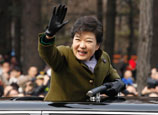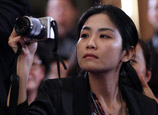
Japanese Prime Minister Shinzo Abe has nominated Asian Development Bank President Haruhiko Kuroda to lead the nation’s central bank and picked two deputy governors. Their stance on monetary policy seems to be biased towards easing, which is helping the Yen’s depreciation, according to Citibank.
The substantial depreciation of the yen is mainly reflected in exchange rates with almost all currencies rising against it. When Abe took office, he announced a 2 percent inflation target to stimulate the economy to fulfil his campaign promise. He also says Japan will officially join the global "indefinite" quantitative easing policy following the United States, and is prepared to carry out large scale asset purchases.
The inflation expectation promotes the yen’s depreciation. The yen has now depreciated by 20 percent since the end of last year. Meanwhile, Abe’s cabinet has also launched a 20 trillion fiscal stimulus plan, which reach the largest since the world war two.
















 Separate accounts or joint account? How Chinese balance the family books?
Separate accounts or joint account? How Chinese balance the family books?


![]()
